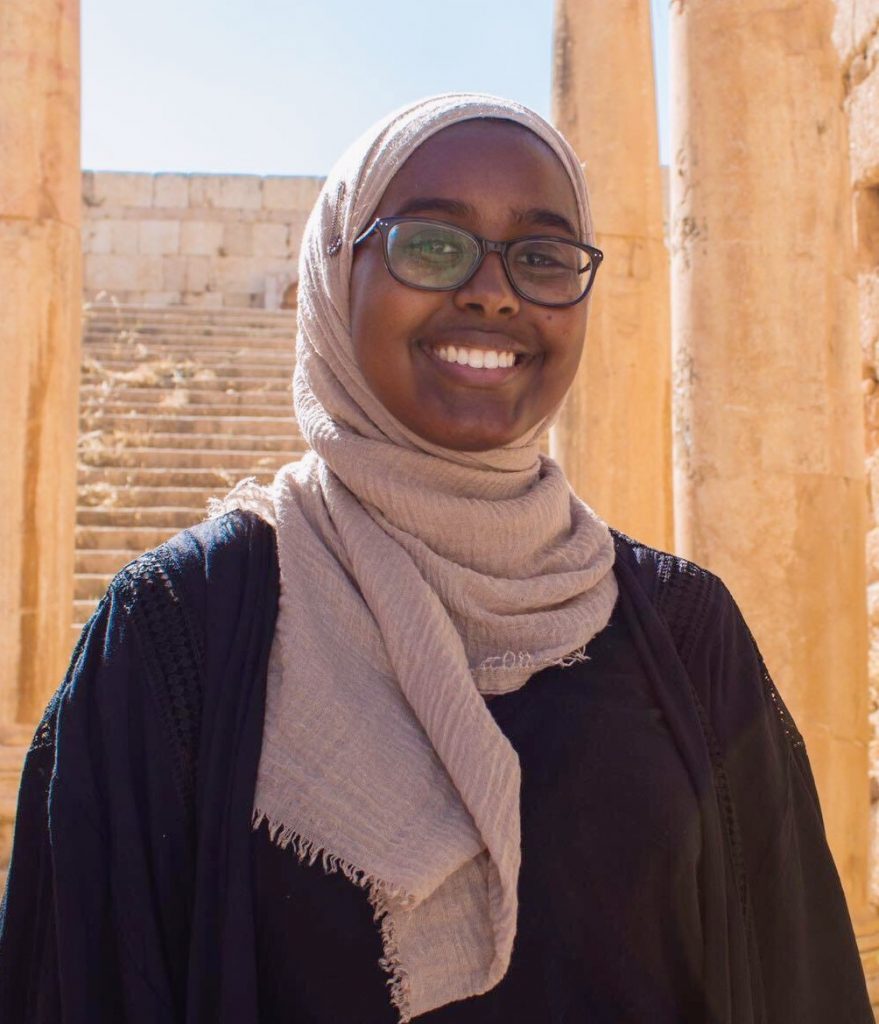Amina is a senior at Duke majoring in Public Policy and Global Health. She is from Raleigh, North Carolina, and is a child of Somali immigrants. Amina is interested in health disparities, specifically in maternal health and amongst refugees. She previously volunteered at the US Committee for Refugees and Immigrants and explored healthcare amongst refugees in Jordan through her internship with Microfund for Women. On-campus, she is involved in neurosurgical-focused global health research, Amnesty International, the Penny Pilgram George Women’s Leadership Initiative, American Mock World Health Organization, and Dukes and Duchesses. Amina also leads Organic Chemistry II tutoring sessions. After her senior year, Amina plans to pursue global health graduate study and attend medical school.
Honors Thesis:
A New Life: Exploring the Maternal Healthcare Experiences of Somali Refugee Women in North Carolina
Faculty Advisor: Professor Jay A. Pearson
Abstract: Existing literature suggests that Somali refugees face unique social and structural barriers when accessing and using maternal healthcare services. Although maternal healthcare is essential for positive birth outcomes, current research lacks data specific to the maternal health experiences of Somali refugees in North Carolina. Such research is necessary to craft recommendations to improve maternal health experiences and establish a more inclusive healthcare system. This thesis explored two research questions: (1) Do Somali refugee women have positive maternal healthcare experiences? (2) What are the social and structural factors that shape Somali refugee women’s maternal healthcare experiences? Thirteen semi-structured interviews were conducted based on factors identified in a literature review. Findings indicate that Somali refugee women in North Carolina have positive maternal health experiences. The results also confirmed several structural and social factors from the literature, such as an absence of social support networks and barriers with transportation access and language services. A further issue found to affect the experiences of Somali refugee women is a lack of cultural-sensitivity to labor induction. This thesis concludes by developing the following policy recommendations: improvement of language services in maternal healthcare facilities, train healthcare professionals to approach labor induction in a culturally-sensitive manner, expand language services in existing social programs, and support training for Somali women to serve as formal maternal health support systems.

